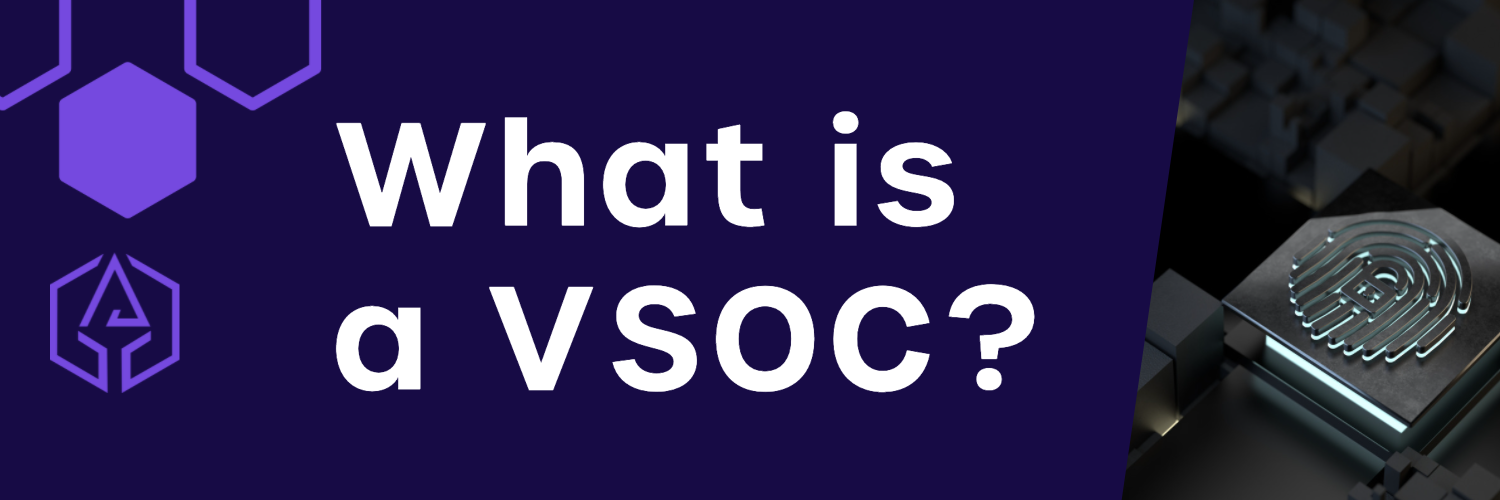Virtual security operations center (VSOC): know processes, capabilities & benefits

Virtual security operations center (VSOC): know processes, capabilities & benefits
Cyvatar | 05/17/2022Organizations that have assets and multiple interaction points with the outside world should make it a point to spend on security monitoring. They can either choose to have an in-house team or engage with a virtual security operations center (VSOC).
The VSOC will take the responsibility of reviewing, detecting, and responding to digital threats.
The average time it takes for companies to detect a breach is 280 days. This is exactly why organizations have to outsource their security operations.
What is VSOC?
VSOC is an outsourced data monitoring solution that has trained security professionals continuously surveying the enterprise’s digital security. A VSOC detects unusual and unauthorized activity in the network and responds to these threats.
VSOCs use cutting-edge technology to offer round-the-clock monitoring, handle events, meet regulatory compliance, and save costs.
Why do you need a VSOC?
Cyberattacks have been increasing in frequency as of late. In fact, 2021 saw 50% more cyber attacks per week in corporate networks compared to 2020. It is pivotal that enterprises proactively look for threats and reduce the effect of breaches as soon as they encounter one.
According to the 2020 State of SecOps and Automation report, in large organizations with 10,000 plus employees, more than 54% of them face 1,000+ security alerts every day. Setting up a dedicated in-house security operations team might not be financially feasible for most organizations.
| Outsource your cybersecurity to Cyvatar with Cybersecurity Foundation Plan |
The solutions are disparate, and you need to purchase, deploy, configure, and maintain these systems. This is where choosing a VSOC becomes the ideal solution. 24×7 monitoring can drain the resources of organizations that cannot afford it.
Also, cybersecurity experts are in high demand, making it all the more difficult to find and retain the right talent.
If you want to safeguard sensitive information, are a part of a regulated industry, or are required to meet stringent service delivery standards, and hold intellectual property then a VSOC is a must-have.
How do cyber security operations centers work?
Organizations should define their security strategy and provide a suitable infrastructure that the VSOC team will work with. The VSOC team collects information from hundreds of security tools and sends actionable security alerts that are eventually responded to.
The VSOCs can be located anywhere in the world. The primary objective of the VSOCs is to monitor security software. Therefore, they don’t need access to the client’s data.
Core processes and capabilities of the VSOC team
- Maintaining security tools: They need to maintain and update the security tools regularly. Unless you have the most updated tools, it is not possible to secure the systems and networks properly.
- Context-awareness: The VSOCs should be able to understand the variety of threats in context. Cyber digital twins (CDT) can be used to assess the severity of a threat. Therefore, it ends up reducing the probability of irrelevant alerts and provides a quick analysis of real security incidents.
- Alert triage: The VSOC collects, correlates log data, and provides the necessary tool to review and detect relevant security events.
- Malware quarantine and analysis tools (Sandbox): Sandbox technologies provide a secure space to execute and analyze malware, without resulting in any damage to the production systems.
- Security orchestration, automation, and response (SOAR): These applications automate the security workflow, thereby reducing the extent of the damage.
The main purpose of SOAR is to reduce the amount of strain-induced on IT teams by having automated responses to a variety of events embedded in a system.
- Intrusion Detection System (IDS): This technology monitors network traffic to identify suspicious behavior patterns. Network-based IDS logs and analyzes traffic flow across networks to identify unauthorized or suspicious activity.
Host-based IDS takes care of file integrity monitoring, log monitoring, rootkit checking, etc., to identify any activity on endpoint devices.
- Alert prioritization: It combs the business environment to look for threats and prioritizes them based on which of them could become a real security incident.
- Managed SIEM: It combines Security Information and Event Management (SIEM) technology to provide visibility of security events inside your organization’s network, including on-premise, cloud, and hybrid environments.
- Remediation and recovery: They are also responsible for mitigating the threat, cleaning the affected systems, and getting them back to working condition.
- Postmortem and reporting: Document the response to the incident, check if the threat has been entirely mitigated, and find ways to improve the security process.
- Vulnerability Scanning: It examines the organization’s computer networks to identify security vulnerabilities that leave them exposed to cyber threats. That said, vulnerability scanning is different from pentesting.
The vulnerability scanner is a highly specialized tool that searches for vulnerabilities in devices, applications, and computers.
It identifies vulnerabilities such as weak network configurations, out-of-date software and applications, insecure passwords, and denial of service vulnerabilities.
- Endpoint detection and response (EDR): Endpoints are a huge security risk as they are vulnerable points of entry.
A VSOC’s service improves the visibility of attacks that target endpoint devices, uses the latest EDR technology, has an experienced team to shut down threats, and identifies threats that other controls would possibly miss.
- Behavioral Monitoring: This technology leverages behavior analysis tools for maximum effectiveness by configuring and monitoring systems 24×7. The VSOC ensures that they deploy systems that are suited to your organization’s threat detection needs.
What should you look for in a Virtual Security Operations Center?
When you are looking for VSOC services, you should choose one based on the following factors.
- 24×7 supervision with no downtime
- Ability to set up and monitor security monitoring software
- The cybersecurity experts should be able to perform the job without getting access to any data
- Flexible SLA to account for non-standard requirements
- No lock-in period
- A clear billing process
- Ability to integrate the security processes within the existing security infrastructure
Benefits of hiring a Virtual Security Operations Center
- Costs
Building and maintaining a physical security operations center is going to be an arduous affair, both in terms of resources and costs involved. You will also have to hire security specialists, especially for this affair.
They should have experience in Security Information and Event Management (SIEM), Endpoint Detection and Response (EDR), and knowledge of other security tools.
- Familiarity with SOC tools
The reasons why setting up an in-house team is discouraged is because selecting the right SOC tools, setting them up with their environment, and covering all issues in the monitoring process requires deep expertise and experience.
On the other hand, a VSOC team is well-versed in the ins and outs of IT security operations. Unless your in-house team has security operation center training and the right set of expertise, it would be unwise to not take the VSOC route.
- Reliability and availability
The cloud environment has changed modern cybersecurity, making it much more reliable and scalable. The expertise and resources required to maintain uptime and ensure the VSOC’s integrity in the cloud exceed what an enterprise can do with an in-house security team.
- Adherence to compliance and regulatory frameworks
Regulations such as GDPR, CCPA, and Privacy Shield have to be adhered to, and the organization should demonstrate that they can pass security audits. An outsourced SOC can help organizations demonstrate compliance.
- Viable for SMBs
Targets these days are not only big organizations, even smaller companies have a lot to worry about. Most of these small and medium-sized businesses do not have the budget or trained security staff to monitor security threats.
- Business-focussed reports
You will get easy-to-read, customizable reports of the activities going on in your enterprise when you have a VSOC team. It is possible to view real-time analyses that match all security datasets against pre-set response criteria and alerts.
- Superior intelligence
All SOC analysts are required to maintain government clearances and are experienced in dealing with highly sophisticated attacks. They follow cybersecurity operational best practices.
- Reduces the complexity of investigations
Your VSOC team coordinates data from multiple sources, such as network activity, endpoint activity, threat intelligence, security events, and authorization. They streamline their investigative operations.
They have deep visibility into the network environment, therefore, it is easy for them to find information.
- Faster incident responses
They swiftly manage critical security incidents as they operate round the clock to detect and respond to incidents. VSOCs use advanced threat intelligence and security tools to identify and understand incidents.
- They can scale quickly
An example of scaling security operations quickly was when the world was forced into lockdowns because of the Covid-19 virus.
Organizations had to find remote methods to continue their business operations. It made a lot of them vulnerable to security breaches. Sensitive information was shared over non-secured communication networks.
Personal computers became work computers. VSOCs helped companies rejig their operations by securing new endpoints and sending critical information to increase their security processes.
- 24×7 protection
Most in-house security operations centers monitor the security systems only during office hours. Even if there is attrition of security staff, it can certainly affect the quality of the care that the organization gets.
VSOCs provide 24×7 monitoring, which increases the reliability of the security, and they also have advanced tools in place to find real security vulnerabilities using a plethora of system alerts.
- Better value
Virtual service operations can provide better security detection and responses than in-house SOCs. It increases the odds of meaningful investigation and reduces the instances of false-positive incidents.
With VSOCs, there is a coordinated and purposeful integration with existing security tools and processes.
- Helps maintain cyber hygiene
By taking up the services of a VSOC provider, your organization will stay on top of cyber hygiene.
You will prevent hackers from finding opportunities to compromise your organization. They will send clear and actionable reports that describe the vulnerabilities discovered, assess the impact that the business will face, and offer remedial guidance.
The VSOC will also develop a long-term security strategy, advise you on future security investments, and make sure that your processes are compliant with the latest security standards.
- Possess key certifications
The security experts in VSOCs possess the highest levels of certification as they have to pass government-directed exams. They hold CREST accreditation and are compliant with key quality assurance standards such as ISO 27001 and ISO 9001.
In a nutshell
Pre-packaged SOC solutions are limited in utility, and in-house SOCs can be a daunting task to build and maintain.
A virtual SOC is the most effective and cost-efficient solution for organizations of all sizes. It combines cutting-edge detection technology with security experts and the latest threat intelligence tools to provide the highest level of security.
They deliver 24×7 expert monitoring, reduce operational costs, help with quick and secure scaling, and ensure that there is no downtime at all.
| Cyvatar is a new-age team of cybersecurity experts with decades of experience in cybersecurity. Get in touch with our security experts. |
